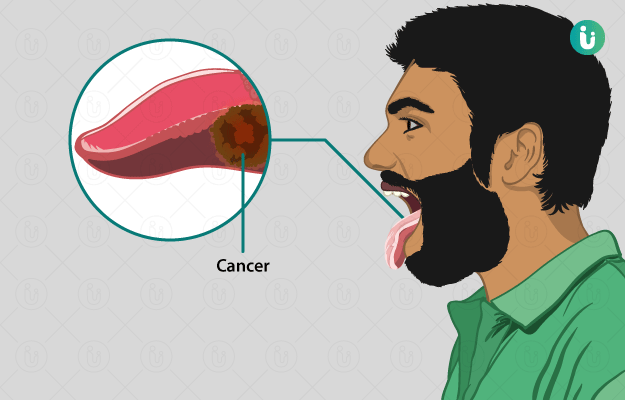Tongue cancer is one of the kinds of head and neck cancer that presents as lesions or tumours on the tongue. It is less common than other types of cancers and mostly occurs in adults over the age of forty. The place in the tongue where the cancerous growth happens affects the treatment and its outcome.
Treatment typically involves chemotherapy, radiation therapy and surgery. Outlook is better in case of early diagnosis with lesser side effects, especially where cancer has not spread to other body parts.

 Doctors for Tongue Cancer
Doctors for Tongue Cancer  OTC Medicines for Tongue Cancer
OTC Medicines for Tongue Cancer













































